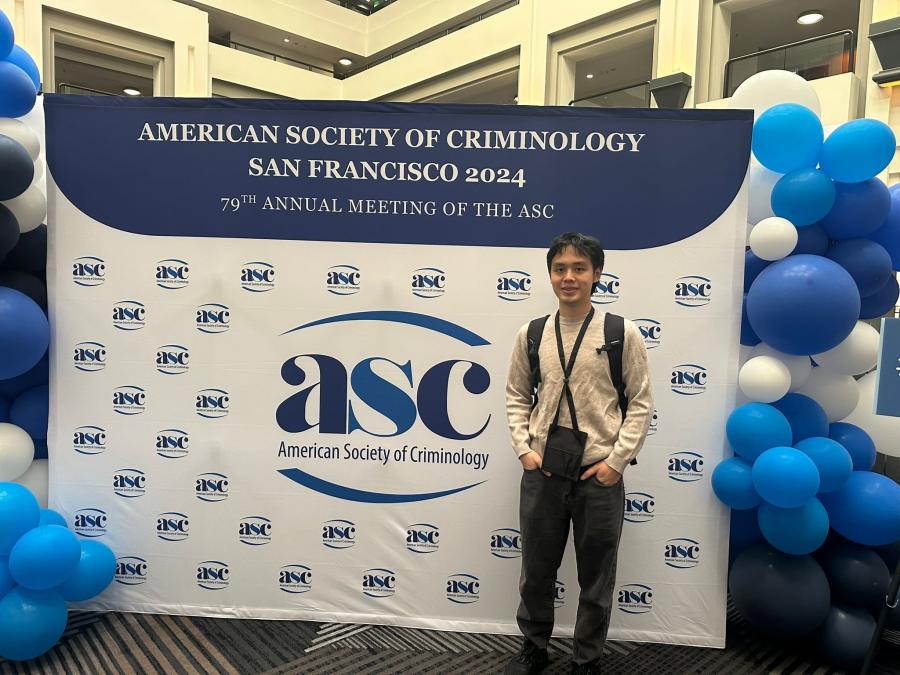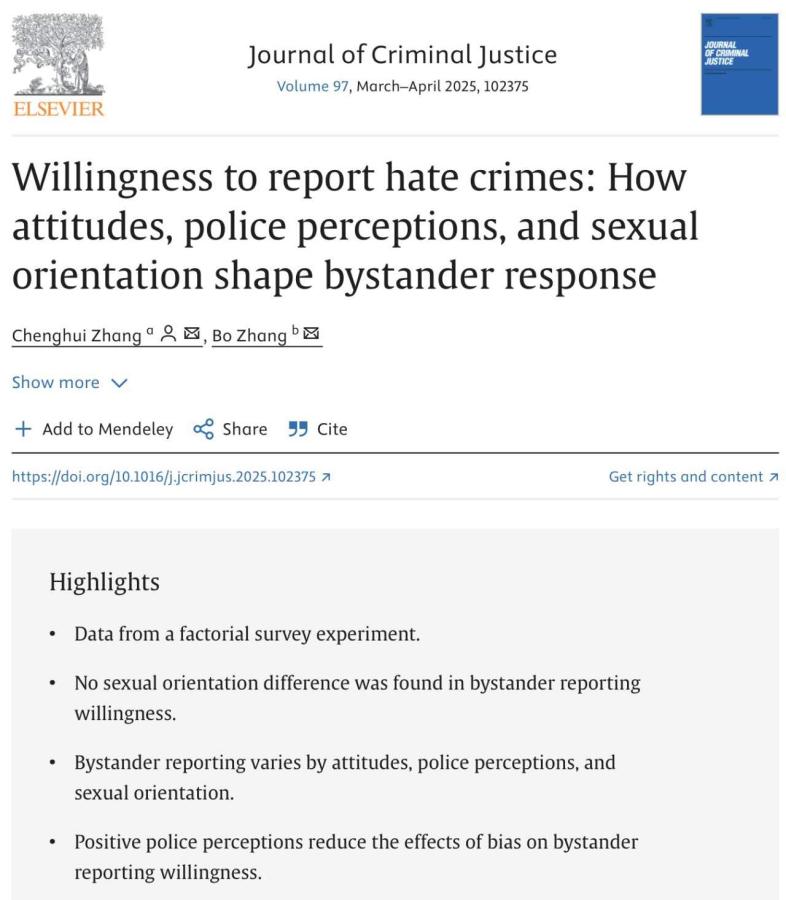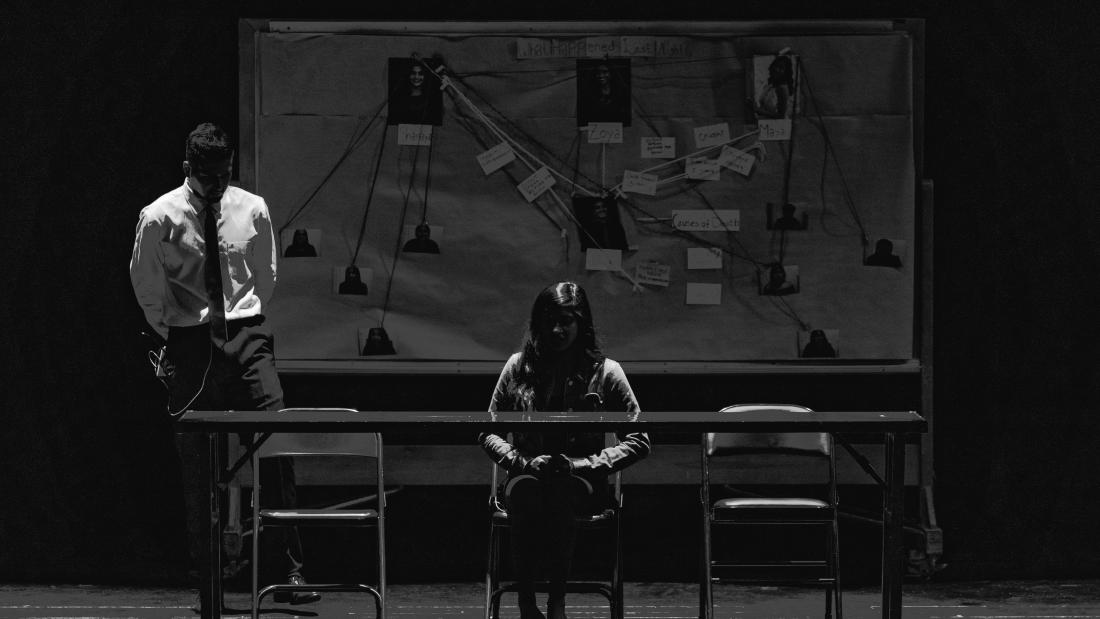
A recent study on bystander willingness to report hate crimes, co-authored by Bo Zhang, who is in his third year of his PhD at Bangor University, and Dr Chenghui Zhang, comes from the University of Nevada, Las Vegas (UNLV), contributes to ongoing discussions on how social attitudes and perceptions of law enforcement shape crime reporting behaviours. This collaboration was made possible through the Taith Programme, which facilitated Bo’s academic visit to UNLV and his participation in a research project led by Dr Chenghui Zhang. The programme played a crucial role in fostering international academic exchange, allowing Bo to engage in criminological research in the United States.
"The opportunity provided by Taith not only enriched my academic experience but also enabled me to contribute to an important area of research alongside esteemed scholars," Bo noted. "This study highlights the value of international partnerships in addressing pressing social issues."

The research, published in the Journal of Criminal Justice, explores how perceptions of police and attitudes toward sexual minorities influence bystanders’ willingness to report sexual orientation-motivated hate crimes. Through a survey experiment with over 2,000 participants, the study found that while sexual orientation alone does not predict reporting behavior, a complex interaction exists between individuals’ attitudes toward LGBTQ+ communities and their trust in law enforcement. Notably, more positive perceptions of the police can affect the willingness to report sexual orientation-motivated hate crimes differently across groups and may help reduce existing biases toward sexual minorities.
This study underscores the importance of fostering public confidence in law enforcement and addressing bias in hate crime response strategies. The findings offer valuable insights for policymakers and law enforcement agencies aiming to improve crime reporting mechanisms and support victims more effectively. It further highlights that improving police-community relations is not just about procedural justice but can be a strategic approach to enhancing social cohesion and protection of minority groups.
This collaboration exemplifies how the Taith Programme facilitates academic connections and supports research efforts that contribute to global discussions on justice and inclusivity.

To read the article in its entirety, please see: Willingness to report hate crimes: How attitudes, police perceptions, and sexual orientation shape bystander response

